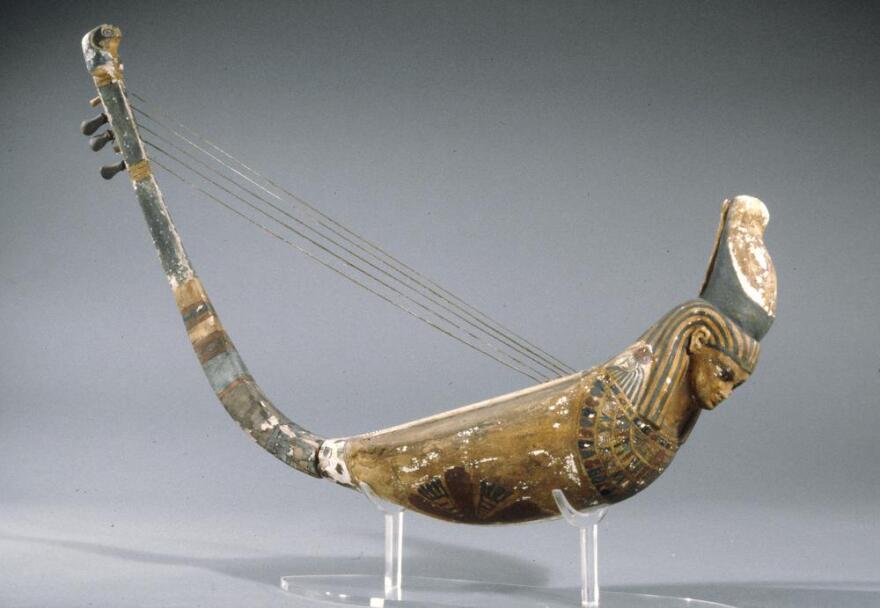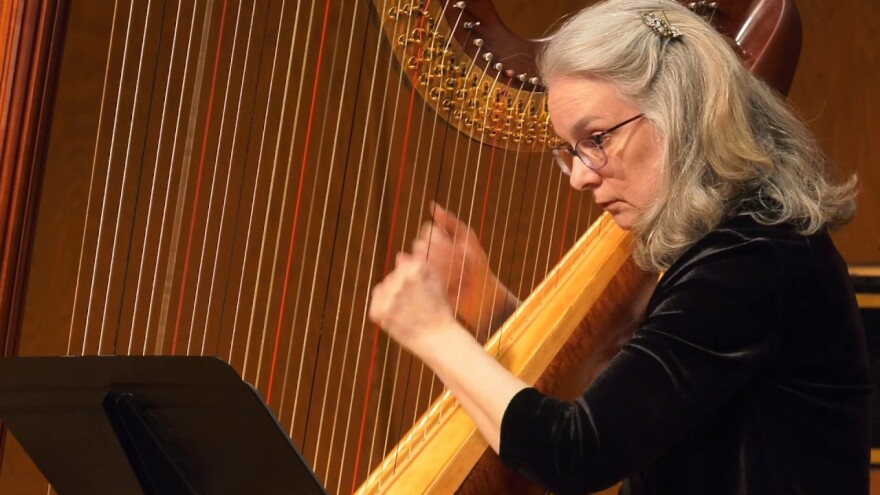The harp might seem more like a fixture in ancient myths or a piece of ornate art than a musical instrument, but it’s actually been a classical music staple for centuries!
Joan Holland, associate professor of harp at the University of Michigan, joined us on this episode of Classical Sprouts to tell us more about the harp’s history and demonstrate all kinds of unique sounds this enchanting instrument can make.

The harp has been around for thousands of years – since at least 3000 B.C..
Ancient people played harps in various forms; some were made of hunting bows and others were triangular.

Early harps could only play a few pitches, so in the 18th century, harp maker Jacob Hochbrucker invented a pedal system for the harp that others have since expanded and refined.
When players press the harp’s pedals, they tighten particular strings to alter their pitches.
The harp's strings are made of different materials; the highest strings are nylon, the middle range strings, called "catgut" strings, are made from the walls of animal intestines (not from cats, though) and the lowest strings are wire.
The modern harp’s range is similar to a piano’s, and composers often incorporate its resonant sounds and special techniques, like glissandi, into their works.
Listen to the episode to hear these special sounds!
Holland also hosted a dance party for us – dance along to her performances of a gavotte, siciliana, gigue and seguidilla!
From Suite of Eight Dances for Solo Harp by Carlos Salzedo
Be sure to subscribe and follow @classicalsprouts on Instagram to join our inclusive community.
Help Sprouts grow! Support IPR for more classical music fun, just tell us in the comments that your donation is for Classical Sprouts.
Classical Sprouts is produced by Emily Duncan Wilson. Stefan Wiebe was this episode's recording engineer. Kacie Brown is the digital content manager.




